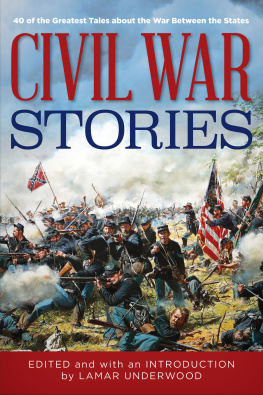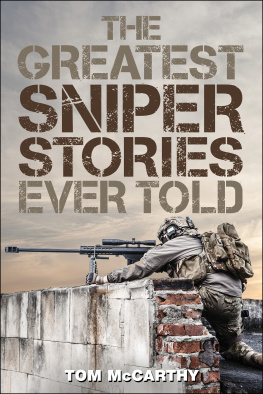The Spy and the Traitor, by Ben Macintyre, copyright 2018 by Ben Macintyre. Used by permission of Crown Books, an imprint of Random House, a division of Penguin Random House LLC. All rights reserved.
The Morning They Shot the Spies, by W.C. Heinz, first published in TRUE magazine then collected in When We Were One: Stories of World War II, published in 2002 by Da Capo Press, a member of the Perseus Book Group. Reprint permission granted by Gayl B. Heinz.
The Spy, by Michael Shaara, from The Killer Angels, copyright 1974 by Michael Shaara, copyright renewed 2002 by Jeff M. Shaara and Lila E. Shaara. Used by permission of Ballantine Books, an imprint of Random House, a division of Penguin Random House LLC. All rights reserved.
The Wolves at the Door: The True Story of Americas Greatest Female Spy, by Judith L. Pearson, from The Wolves at the Door: The True Story of Americas Greatest Female Spy, Lyons Press, 2005, 2008. Reprinted by permission.
The Thirty-Nine Steps, by John Buchan, published by William Blackwood and Sons, Edinburgh, 1915.
OSS, by Richard Harris Smith, from OSS:The Secret History of Americas First Central Intelligence Agency, Lyons Press, 2005. Reprinted by permission.
The Spies Who Stole a Train, by William Pittenger, from the book Capturing a Locomotive, 1881.
Spy for the Continental Army, by A.A. Hoehling, from Women Who Spied: True Stories of Feminine Espionage, Madison Books, Rowman-Littlefield, 1992.
The Frontier Spy, by James Fenimore Cooper, from The Spy: A Tale of the Neutral Ground, 1821.
The Craft of Intelligence, by Allen Dulles, from The Craft of Intelligence:Americas Legendary Spy Master on the Fundamentals of Intelligence Gathering for a Free World, Lyons Press, 2016. Reprinted by permission.
Pinkertons War: The Civil Wars Greatest Spy and the Birth of the Secret Service, by Jay Bonansinga, from Pinkertons War: The Civil Wars Greatest Spy and the Birth of the U.S. Secret Service, Lyons Press, 2012. Reprinted by permission.
Beyond Repair, by Charles S. Faddis, from Beyond Repair: The Decline and Fall of the CIA, Lyons Press, 2009. Reprinted by permission.
Memories of Sherlock Holmes: The Final Problem, by Arthur Conan Doyle, from Memories of Sherlock Holmes: The Final Problem, 1893.
A Spy Among Friends: Kim Philby and the Great Betrayal, by Ben Macintyre, from A Spy Among Friends: Kim Philby and the Great Betrayal, copyright 2014 by Ben Macintyre. Used by permission of Crown Books, an imprint of Random House, a division of Penguin Random House LLC. All rights reserved.
Ben Macintyre
The best true spy story I have ever read.
Those words from distinguished author John Le Carr on the cover of Ben Macintyres The Spy and the Traitor provide the launching of this new spy stories book with liftoff power. Macintyres book is subtitled: The Greatest Espionage Story of the Cold War. If that description and John Le Carrs quote dont grab you, as they have this editor, Im afraid youve come to the wrong pew.
Since the publication of The Spy Who Came in from the Cold , in 1963, John Le Carr has been my favorite spymaster. From George Smiley tales, like Tinker, Tailor, Soldier, Spy and The Honorable Schoolboy , through the years to more recent bestsellers like The Night Manager , Le Carrs prose has carried me into spying adventures. A writer of fiction, Le Carr worked in British Intelligence for years and knows what hes speaking about.
This excerpt from The Spy and the Traitor is a clear-cut chase story, a tense feel-the-heartbeats account of a Russian turncoat agent on the run from the KGB, Russias biggest and most vicious Intelligence agency. This was 1985, and Oleg Gordievsky had been delivering Russian secrets to British Intelligence for years while working for the KGB.
Ben Macintyre opens his book with this clear and powerful statement: Oleg Gordievsky was born into the KGB, shaped by it, loved by it, twisted, damaged, and very nearly destroyed by it.
Gordievsky was well-educated, knew languages, and despite his background he came to see the savagery and terror of the Communist regime. He became an agent for MI6, the British Intelligence Service and delivered critical information during the Margaret Thatcher and Ronald Reagan era. MI6 fiercely guarded Gordievskys identity, even from the CIA. Good thing too, because at this same time the Russian spy Aldrich Ames was tearing the CIA apart.
As the KGB began moving in on Gordievsky, Margaret Thatcher launched Operation PIMLICO to get Gordievsky out of Russia, across Finland, and to England. Our excerpt begins with Gordievsky on the run for his life.
F RIDAY , J ULY 19
10 a.m., British embassy, Moscow
As the hour of departure approached, Roy Ascots mounting excitement competed with a rising dread. He had spent much of the night praying. I was pretty certain that, however we prepared ourselves, only prayer would see us through the operation. MI6 had never attempted to smuggle anyone across the Russian border before. If PIMLICO arrived at the rendezvous alone, it would be hard enough, but if, as expected, he brought his wife and two children, the chance of success was infinitesimal. I thought: this man will be shot. The plan could not work. We all knew how flimsy the whole thing was. We were fulfilling a promise, and we had to do it even though we were walking into something that wasnt going to work. I put the chances at twenty percent or lower.
A telegram arrived from Century House. The bosses in London detected signs of wobbliness on the part of the embassy management, and had composed a message to stiffen the sinews. It read: The Prime Minister has personally approved this operation and expressed her complete confidence in your ability to carry it out. We all here join in standing 100% behind you and are confident you will succeed. Ascot showed it to Cartledge, to demonstrate the continuing top-level clearance in London.
Then another potentially lethal snag emerged. In order to leave the Soviet Union by car, foreign diplomats needed formal permission and special license plates. The official garage doing the plating closed at midday on Fridays. Gees Ford was replated without a hitch, but Ascots Saab was sent back with the message: Sorry. We cant plate this because your wife hasnt got a driving license. Carolines handbag containing her Soviet license had been stolen the month before, and to obtain a new one, she had sent in her British license to the consular authorities. This had not yet been returned and a new Soviet license issued. Diplomats were not permitted to drive alone; without a codriver with a valid Soviet license. Ascot could not get the official plates; without these plates they could not leave the Soviet Union. PIMLICO was about to founder on a tiny but immoveable rock of Russian bureaucracy. At 11 a.m., an hour before the traffic authorities shut for the weekend, Ascot was still racking his brains for a solution when a package arrived from the Soviet Foreign Ministry containing Carolines British license and a new Soviet one. We had an hour to get our car plated in time. I couldnt believe it, this incredible stroke of luck.
But, on second thought, Ascot wondered if the unexpected and timely return of the license really was serendipity, or part of the KGB setup: We had cleared the last obstacle to travel, but it all looked very pat.
11 a.m., Leninsky Prospekt, Moscow
Gordievsky spent the morning cleaning the flat from top to bottom. In a very short time, the KGB would tear it apart, rip up the floorboards, demolish his library page by page, and dismantle every stick of furniture. But some odd pride made him determined that his home should look shipshape when they arrived to destroy it: he did the washing up, arranged the crockery, washed his clothes in the sink, and hung them out to dry. On the counter he left money for Leila, 220 rubles, enough to cover household expenses for a few days. It was a small gesture but of what? His continuing care? Apology? Regret? The money would probably never reach her. The KGB would surely confiscate or steal it. Like the meticulous cleaning of the flat, he was sending a message that said more about him, perhaps, than he realized: Gordievsky wanted to be thought of as a good man; he wanted the KGB, which he had deceived so comprehensively, to respect him. He left no note of self-justification, no explanation for having betrayed the Soviet Union. If they caught him, the KGB would extract all that, and this time with nothing so gentle as a truth drug. He left a spotless flat, and a lot of clean laundry. Like Mr. Harrington, he would not flee without doing his washing.













